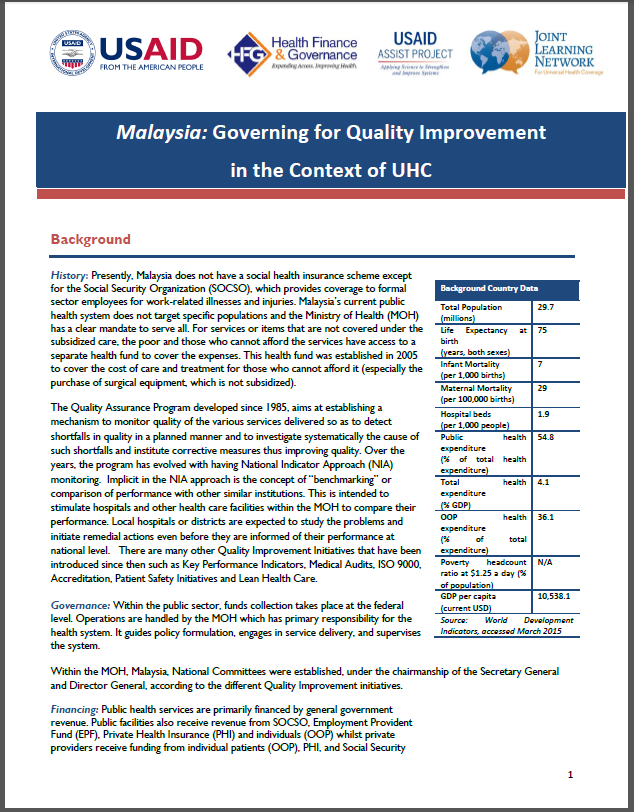Malaysia: Governing for Quality Improvement in the Context of UHC
Categories: Governance and Leadership, Publications, Universal Health Coverage, Where We Work
 Resource Type: Case Study
Resource Type: Case Study
Authors: Lisa Tarantino, Kelley Laird, Amanda Ottosson, Ruben Frescas, Kedar Mate, Vivian Addo-Cobbiah, Cynthia Bannerman, Paulina Pacheco, Daniel Burssa, Andrew Likaka, Mirwais Rahimzai, M. Rashad Massoud, and Shams Syed
Published: August 2016
Resource Description:
Presently, Malaysia does not have a social health insurance scheme except for the Social Security Organization (SOCSO), which provides coverage to formal sector employees for work-related illnesses and injuries. Malaysia’s current public health system does not target specific populations and the Ministry of Health (MOH) has a clear mandate to serve all. For services or items that are not covered under the subsidized care, the poor and those who cannot afford the services have access to a separate health fund to cover the expenses. This health fund was established in 2005 to cover the cost of care and treatment for those who cannot afford it (especially the purchase of surgical equipment, which is not subsidized).
The Quality Assurance Program developed in 1985, aims at establishing a mechanism to monitor quality of the various services delivered so as to detect shortfalls in quality in a planned manner and to investigate systematically the cause of such shortfalls and institute corrective measures thus improving quality. Over the years, the program has evolved with having National Indicator Approach (NIA) monitoring. Implicit in the NIA approach is the concept of “benchmarking” or comparison of performance with other similar institutions. This is intended to stimulate hospitals and other health care facilities within the MOH to compare their performance. Local hospitals or districts are expected to study the problems and initiate remedial actions even before they are informed of their performance at national level. There are many other Quality Improvement Initiatives that have been introduced since then such as Key Performance Indicators, Medical Audits, ISO 9000, Accreditation, Patient Safety Initiatives and Lean Health Care.



